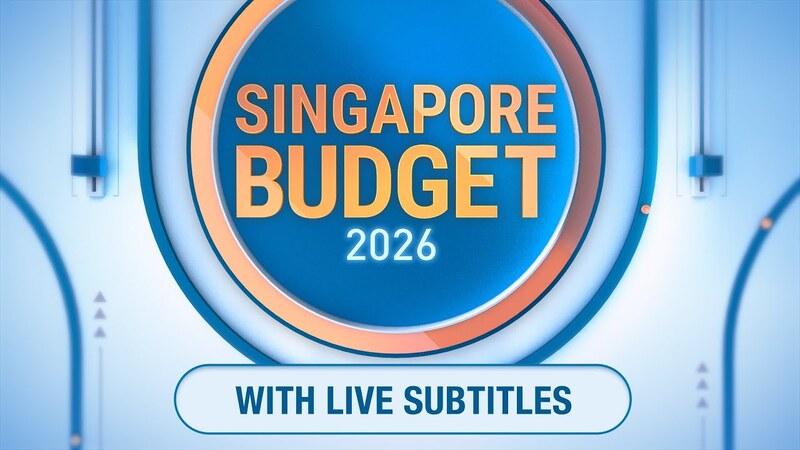Hybrid, Purpose, and Pay: What Singapore Workers Want in 2025
Singapore’s workforce is evolving fast. As companies tighten hiring practices amid inflation and AI disruption, workers are holding firm on what matters most—flexibility, purpose, and better pay.
📰 As featured on Yahoo! Finance, Vulcan Post, and other leading media, the Reeracoen × Rakuten Insight APAC Workforce Whitepaper 2025 highlights what today’s Singapore workers truly want—and how employers must evolve.
A new study by Reeracoen and Rakuten Insight Global, based on responses from over 12,000 professionals across 12 Asia-Pacific markets, reveals that Singapore ranks #1 in hybrid work adoption and #2 in APAC for CSR-influenced job decisions. But a growing gap is emerging between what workers expect and what employers are prepared to offer.
For professionals in Singapore, 2025 is shaping up to be a year of recalibration and opportunity.
Singapore Leads in Flexibility—But for How Long?
According to the whitepaper, 68% of workers in Singapore are offered hybrid work arrangements—the highest rate across all 12 APAC markets surveyed. This flexibility far surpasses the APAC average of 46%.
Yet as employers become more ROI-driven, many are starting to reassess hybrid policies. Some companies may roll back flexibility unless workers can show its value in terms of productivity, retention, and engagement.
“While companies have regained leverage in hiring, workers remain firm in their expectations,” said
Kenji Naito, Group CEO of Reeracoen Group.
For workers, this means learning to thrive in both in-person and remote environments, and demonstrating that flexibility fuels—not hinders—performance.
CSR and Purpose Are Now Deal-Breakers
Beyond pay and perks, values now influence career choices. In Singapore, 79% of workers say that a company’s sustainability and CSR efforts shape their job decisions, making it the second-highest across the region.
Workers are no longer just looking for jobs—they want:
- Ethical business practices
- A clear environmental and social mission
- Mental health support
- Inclusive leadership and culture
Candidates are screening companies as much as companies are screening candidates. The message is clear: purpose attracts people.
Top Motivators for Singapore Workers in 2025
When asked what drives their job decisions, Singaporean workers said:
- Salary – 82%
- Skill development – 67%
- Work-life balance – 61%
This means companies need to offer more than a paycheck—they must provide clear growth paths and time for life beyond work. Workers expect structured learning, mental wellness support, and meaningful performance recognition.
Rising Wage Expectations Amid Economic Caution
One in four Singaporean workers is expecting a pay rise of over 10% in 2025, largely due to:
- Cost-of-living pressures
- Inflation
- Housing and transport costs
However, companies are becoming more cautious. Many are focusing on leaner teams, outcome-driven roles, and measurable ROI from every hire.
Professionals who want to succeed in this climate must:
- Be agile and multi-skilled
- Show initiative to upskill without waiting for company funding
- Tie personal growth goals to business outcomes
Singapore Workers Prefer Local Stability
Unlike their regional counterparts, Singaporeans show less interest in relocating abroad. Only 43% are open to overseas opportunities, compared to:
- 62% in Vietnam
- 46% in Malaysia
This local-first mindset means increased domestic competition. Workers must stay sharp and relevant to stand out—especially in key growth sectors like digital, green energy, financial services, and healthcare.
📊 2025 Snapshot: Where Singapore Workers Stand Out
- Hybrid work access? 68% (highest in APAC)
- Care about CSR when job hunting? 79% (2nd highest)
- Keen to work overseas? Only 43%, far below the APAC average of 66.3%
- Salary is king – 82% rank it as their #1 motivator
- 25% want a raise above 10% this year
Final Thoughts: A New Era of Work-Life Integration
Singapore may be small in size, but it leads the region in flexibility, values alignment, and professionalism. But 2025 is not business as usual. To stay ahead, workers must:
- Speak up for what they value
- Continue learning even outside formal training
- Choose employers who align with their ethics and purpose
“Sustainable practices and purpose-led work environments are no longer optional. Candidates are screening for them and making decisions accordingly.”
– Shoichi Sunaga, Branch Manager, Reeracoen Singapore
This year is not just about job security—it’s about career satisfaction and meaningful growth.
FAQ: What Singapore Workers Are Asking in 2025
Q1: Will hybrid work stay in Singapore?
Yes—but expect stricter tracking of performance and accountability. Flexibility is becoming a standard, but not a free-for-all.
Q2: Is it okay to ask about CSR and purpose in job interviews?
Absolutely. Ask what initiatives they support, how they involve employees, and what KPIs they track for sustainability or inclusion.
Q3: How can I justify a 10%+ salary raise?
Document your contributions, results, and improvements. Benchmark your role and be ready to discuss alternative benefits if budgets are tight.
Q4: What industries are thriving in 2025?
Technology, green energy, financial services, healthcare, and digital transformation continue to hire actively.
Q5: How do I stand out without moving overseas?
Build cross-functional skills, network locally and regionally, and stay visible through platforms like LinkedIn. Learning agility matters more than location.
Ready to Take the Next Step in Your Career?
🔹 Explore exciting job opportunities in Singapore now
🔹 Hiring future-ready talent? Submit your hiring needs here
Disclaimer:
The information provided in our blog articles is intended for general informational purposes only. It is not a substitute for professional advice and should not be relied upon as such.
While we strive to provide accurate and up-to-date information, the ever-evolving nature of certain topics may result in content becoming outdated or inaccurate over time. Therefore, we recommend consulting with qualified professionals or experts in the respective fields for specific advice or guidance. Any actions taken based on the information contained in our blog articles are solely at the reader's discretion and risk. We do not assume any responsibility or liability for any loss, damage, or adverse consequences incurred as a result of such actions.
We may occasionally provide links to external websites or resources for further information or reference. These links are provided for convenience and do not imply endorsement or responsibility for the content or accuracy of these external sources. Our blog articles may also include personal opinions, views, or interpretations of the authors, which do not necessarily reflect the views of our organisation as a whole. We encourage readers to verify the accuracy and relevance of information presented in our blog articles and to seek professional advice when needed. Your use of this website and its content constitutes acceptance of this disclaimer.





